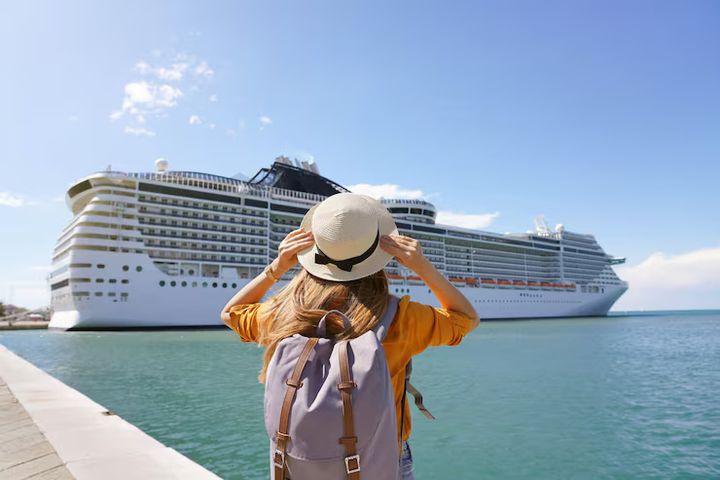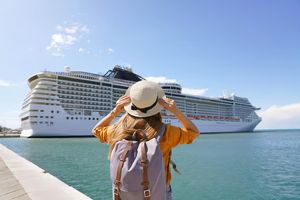Cruzing is one of the most unique ways to detect multiple destinations and enjoy the facility of an all-in-one floating resort. A cruise ship usually adds travel, housing, food and entertainment to a package, giving passengers a chance to go to different ports without changing the hotel or making separate transport.
The concept of cruise holidays exists for decades, but their popularity has increased significantly as the ships have become large, more innovative and more accessible. Today, from families and couples to single brave and retired people, from budget -friendly travels to luxury experiences, they complete a wide range of travelers.
For the first time passengers, however, the idea of riding a large ship for days or weeks may feel heavy. This is why practical guidance and clear information are needed.
Meaning: Why Cruise Travel means something today
Cruise has become a quick popular way of traveling, with millions of people cycling on ships every year. For the first time for travelers, cruise holidays solve many common travel problems:
-
Construction: Cruise offers housing, food and entertainment in one place, and reduces the need to plan more aspects of a trip.
-
Miscellaneous destinations: A simple cruise journey often includes many cities or countries, making it an effective way to detect new areas.
-
Safety and structure: Cruise provides a controlled environment, which is convinced to travelers who cannot feel comfortable planning independent international trips.
-
Social opportunities: For families, couples or single travelers, cruise creates opportunities to contact other passengers.
In 2025, revolutions also mean somewhat in terms of sustainable journeys. Many cruise lines invest in green technologies, including energy-related ships and waste scores, and appeal to environmentally conscious travelers.
Newer updates: Trends and development in 2024–2025
The cruise industry has experienced many changes over the past year:
-
Note Stability (2024–2025): Many cruise companies are infections in liquid natural gas (LNG) driven vessels and incorporate recycling programs on board to meet global stability goals.
-
Technology integration: Digital boarding passports, Contactless Payment and Smart Restands have become standard in the most prominent cruise lines. These features offered a lot in 2024 make navigation on board and buy easy for travelers.
-
Adjustment of health protocol: Following global lessons from cruise lines in streamlined health and safety processes in 2024. Although in most cases it is no longer mandatory, increased hygiene and ventilation systems are in place.
-
New Yatra program: Cruise lines are expanded beyond traditional websites. In 2025, Asia is increasing interest in Northern Europe, Arctic and small ports, giving passengers more different travel options.
Laws and Guidelines affecting the cruise journey
Cruise holidays work under a combination of international maritime laws, port councils and national travel policies. Big points for the first time passengers include:
-
Passenger rights: In many regions including the EU, cruise lines are required to postpone, cancel laws or assist in the event of accidents. This may include partial reimbursement or alternative transport system.
-
Health and Safety Regulations: Ships shall follow international standards set by the International Maritime Organization (IMO). These rules cover fire safety, emergency practice and hygiene.
-
Travel documents: Passengers must organize valid passports on the basis of conversations and visas in some cases. For example, US citizens traveling on the Caribbean cruise may not require a visa, but still require a valid passport.
-
Consumer security: In countries such as the United States, the Federal Maritime Commission cruise operators monitors and requires financial security when it comes to cancellation or operator solvency.
-
Environmental law: Many fields, such as Norway's Fosers and Alaska, implement strict emissions and waste management rules for cruise ships, which affect the travel program and operational practice.
Equipment and resources for cruise passengers
Cruise is easy to plan with digital tools and structured resources.
Online platforms and apps
-
Cruise critic: Comparison offers reviews, platforms and detailed travel programs.
-
Ship Met App: Ship offers maps, planning and countdown tools for passengers.
-
Rome2rio: Assistant for planning transport from cruise harbor.
-
XE MUDRA app: International passengers assist with currency conversion while visiting many countries.
Budget and planning tools
-
Cruise Price Tracker (Cruise Watch): Value for different cruise lines screens and screens.
-
Tripit: A journey organizes cruise -related reservations including aircraft and hotels in the program.
-
Budget calculator: Simple spreadsheets or calculators can help estimate daily expenses, including drinking money, excursion and shopping on the ship.
Health and Safety Resources
-
CDC Cruise Ship Traveler Health Portal (U.S.): Offers updated health and vaccination requirements for international cruises.
-
Travel insurance compound equipment: Websites such as Insuremtrip allow passengers to compare medical treatment, delays and cancellations of travel.
Practical advice for cruise passengers for the first time
To help you imagine the difference between cruise experiences here is a simple comparison table:
Question to ask
-
What documents do I need for cruise?
Most passengers require a valid passport. Depending on your travel program, you may also need a visa for some ports. Always confirm the cruise line and authorities on the authorities before departure.
-
How should I budget for extra cost on cruise?
While the price includes housing and food, additional expenses include frequent excursions, internet use, drinking money and special foods. Setting 20-30% of the basic price for extra is a practical guideline.
-
Are the cruises safe for passengers for the first time?
Yes. Cruise lines follow strict safety standards, including compulsory exercises and health protocols. However, passengers should still buy travel insurance and follow the guidelines on the ship.
-
Can I stay on a ship in port days?
Yes, it is allowed to stay on the ship. Many for the first time choose passengers to remain on the ship at least once, when most passengers are shelters have quiet facilities.
-
How do I cope with the sea?
Choosing a cabin in the middle of the ship and on a lower deck helps to reduce speed. Over-the-counter treatment and building are also often used.











